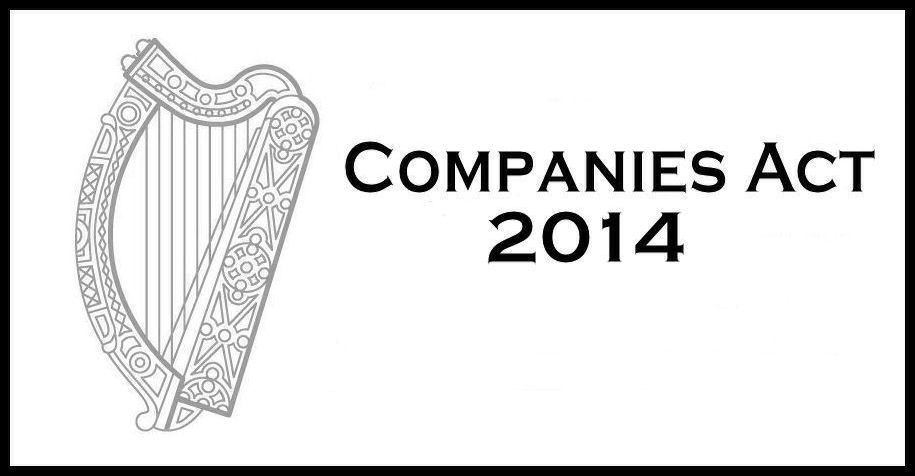The Companies Act, 2014 will ensure big changes in company law in Ireland will come into effect on 1st June, 2015.
This will mean that existing statutes which have been in force for over 50 years will be binned, and this includes the Companies Act, 1963 and the Companies Act, 1990.
Key definitions
Some critical definitions to understand will be
- A DAC-designated activity company
- An LTD-the new name for the existing private limited company.
Existing private companies limited by shares will be treated as DACs (designated activity company) unless they convert to an LTD during the transition period-the 1st 18 months from 1st June, 2015. This transition period ends on 30th November, 2016.
The procedure for the existing private company limited by shares to transfer to an LTD is a straightforward one.
The new LTD only needs one director; the DAC requires two directors.
There will be other types of company such as PLC (public limited company), CLG (company limited by guarantee), ULC (unlimited company with a share capital), PUC (public unlimited company), but the most common types will be LTDs and DACs.
What’s new?
- The existing Memorandum of Association and Articles of Association in private companies will be replaced by a Constitution;
- Only 1 director will be required for an LTD;
- The section 150 restriction application re directors will now become a section 819 application;
- There is a new obligation on directors to act “honestly and responsibly”;
- There are more audit exemptions for companies;
- The directors will have a duty to ensure that the Company Secretary has the skills necessary to act as Company Secretary and maintain the records which need to be kept;
- A new Registered Person can be registered with CRO and can bind the company in a particular transaction or class of transactions; a Company can revoke the registration of a Registered Person by completing the correct form and submitting to CRO;
- Directors will be acknowledging on appointment, by certification, their legal duties under the companies acts, other acts, and in common law;
- Company secretaries will also have to acknowledge their legal duties and consent to their appointment;
- The definition of an insolvent company will change to one which is unable to pay a debt in excess of €10,000.
Designated Activity Companies (DAC)
A DAC must
- Have a Memorandum and Articles of Association
- Have at least 2 directors
- Hold an AGM.
LTD companies
- There will be no ultra vires as there will be unlimited objects permitted
- A one page constitution will replace the Memorandum and Articles of Association
- Will have the legal capacity of a Natural Person
- You can have a Single Director Company (no need to drag your spouse/partner into being a director)
- No need to hold an AGM
- No need to have an Authorised Share Capital
- There will be new responsibilities and duties for directors.
To convert an existing private company to an LTD you do so by passing a special resolution, fill out CRO form N1, and CRO will issue a new Certificate of Incorporation.
If an existing private company fails to convert by the end of the transition period, the company will be deemed by law to be an LTD and will have a constitution comprising its existing articles and memorandum-without the Objects clause.
Forms N1, N2, N3
Form N1 is to be used to convert a private company to an LTD, pursuant to section 59/60 of the new Companies Act; N2 is used to convert a private company to a DAC pursuant to section 63; form N3 is used for companies limited by guarantee.
Other provisions of the Companies Act, 2014
Section 52 allows a Court to order a company to give full security for the costs of legal proceedings where the company is a plaintiff if it appears that the company will be unable to pay if it loses its case.
Section 53 deals with the enforcement of judgements against companies and their officers and gives the option to a Court to order the personal assets of directors are seized where an order or judgment is wilfully disobeyed or ignored.
This should give creditors, who are left unpaid by companies, a new weapon personally against the directors of the company.
Section 212 is the equivalent of the existing section 205 which aims to provide relief for minority shareholders who are oppressed.
Section 223 and 224 place new statutory duties on directors-section 224 obliges “directors to have regard to the interests of employees.”
Section 343 is a new application which can be brought in the District Court seeking to have a company’s audit exemption restored- a company automatically loses audit exemption when it is late filing its statutory returns with CRO, which is a regular occurrence up and down Ireland.
Disclaimer
The above is only a guide to the Companies Act, 2014, it is not legal advice.
For legal advice, contact a solicitor.
For more information, take a look at CRO also.
